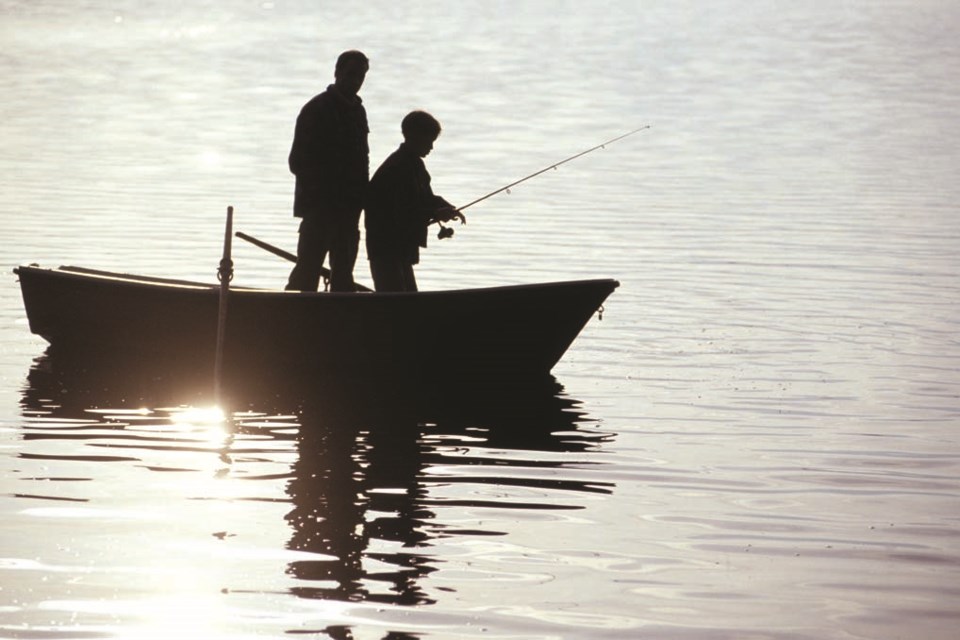After a three-month delay, the 2024 Alberta Sportfishing Regulations were released on July 5. Alberta had been operating under the 2023 fishing regulations up until now.
Updated regulations are usually released in April, but deliberations over regulation changes caused an unforeseen delay. Some changes have been implemented, but work is still underway.
According to the 2024 regulations, the possession limit for Cold Lake is the only change within the Lakeland region.
Cold Lake possession limits are as followed: 3 Walleye over 50 cm, 1 Northern Pike over 63 cm, 15 Yellow Perch, 10 Lake Whitefish,10 Burbot, and 1 Lake Trout 65-70 cm from May 15 – Sept. 14, and Nov. 16 – March 31 (0 Lake Trout from Sept. 15 – Nov. 15).
“My hope for the future is to see more of our lakes being opened for fishing, allowing us to keep more of our catches,” said Bonnyville-Cold Lake-St. Paul MLA Scott Cyr said in response to the 2024 regulations.
“Minister [Todd] Loewen has been working diligently behind the scenes on this issue, and I greatly appreciate his efforts. One significant change in the new regulations is that Cold Lake's regulations have now been aligned with Saskatchewan's, as the lake is shared between both provinces.”
In the pages of the new regulation guide book, Todd Loewen, Minister of Forestry and Parks, states the 2024 fishing season has not been a typical year in terms of timelines.
“With a goal of making your feedback and ideas part of how we manage these resources, fisheries staff have been working hard behind the scenes to reshape how recreational fisheries are managed in the province... Choosing sound management approaches now means that we will continue to recognize the benefits of this work for generations.”
Loewen says the government is making progress towards determining potential changes.
“These proposed changes will be shared with Albertans in the coming months, ahead of the 2025 fishing season. Our goal is to continue to protect and conserve fish populations while creating fishing and harvesting opportunities with a diversity of fishing opportunities. We will continue to promote the use of this renewable resource for all to enjoy.”
Despite few regulation changes in the NB1 area, which includes the Lakeland, retired biologist Ray Makowecki finds the increase in Cold Lake possession limits to be a good sign for future changes and believes that the regulation changes that have been made suggest that public feedback is being engaged with and considered.
“At least there’s an opportunity to harvest some fish, so that was good. The discussion did involve some public suggestions. So yes, there was a movement to increase fishing opportunities, we think there are several other opportunities, and we believe the minister is confirming to us, saying It’s still in the review process and that review process hopefully will have a total adjustment in regulations for 2025,” said Makowecki, an advocate for sustainable fishing opportunities with the regional lobby group the Next Step Team, comprised of anglers, business owners, municipal politicians and Fish and Game organizations,
Cyr has sent a formal proposal to Loewen’s department in an effort to increase sustainable harvesting opportunities.
“This proposal aims to investigate the effects of stocking and transplanting yellow perch and walleye, alongside implementing a combination of cormorant management techniques in Northeastern Alberta. Our goal is to ultimately restore a healthy recreational sport fishing industry while maintaining and increasing fish habitats when possible,” Cyr stated.
“While I understand that many people, including myself, were hoping for more lakes to be opened, I know that Minister Loewen is committed to ensuring sustainable fishing practices that will allow us to continue harvesting fish in the long term.”
Makowecki describes the regulation reformation as a complex process covering an array of diverse lakes, environmental factors, social factors, sustainability, and historical context.
When asked why the regulation changes are taking so long, Makowecki reflects on the Government of Alberta's efforts to collect and process public feedback that must be considered alongside recent drought concerns, and scientific data.
Consolidation of public feedback and scientific data alone takes time. Consideration of current environmental risks, and a healthy dose of precaution, fueled by the memory of past lake collapses, have made for a long consideration process.
The division of responsibility among governing bodies requires collaboration.
“There are two ministries that have responsibilities for fish management, one deals with hunting and fishing regulations, and the other deals more with the science world – environment and protected areas it’s called - has a bunch of biologists. Fish and Wildlife used to be always the one department, and the officers now are separated as well, so they’re in a third department,” says Makowecki
The discussion on regulatory changes, though, is far from new.
“I’ve been involved in this discussion for twenty-five years. Especially the last major meeting in Lac La Biche and in Lac Bellevue in 2016, so that’s almost 10 years where I’ve had this thing called the Next Step Team, as well as the volunteer biologist group, and these groups have been constantly communicating with the government,” said Makowecki.
According to Makowecki, “Over the past 25 years, restrictive fishing regulations have significantly reduced fish harvest. As a result, the number of resident angling licenses sold has declined as Alberta’s population has increased. Government data and angler catch information suggests abundant walleye in several lakes and healthy pike populations in the pike-perch lakes. Yet, there is reluctance to open lakes to harvest.”



